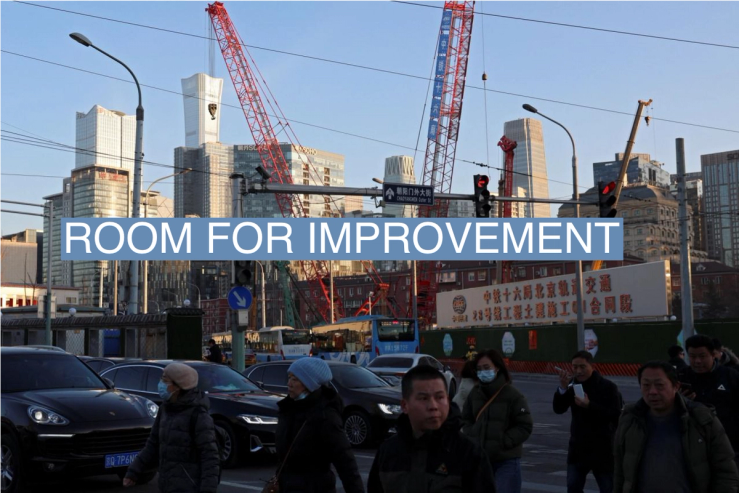The News
Sinking stocks, stubborn youth unemployment, worsening property sales, and lackluster GDP growth added up to a gloomy outlook for China’s economy Thursday, as officials signaled they wouldn’t use a massive stimulus package to spur growth.
China’s economy grew 5.2% last year, the lowest in decades, and the mood within the country feels particularly recessionary, analysts said, especially for young people facing a tough job market.
SIGNALS
Investor confidence worsens amid deflationary pressure
Stock dropped across Hong Kong and mainland China this week after Taiwan’s presidential election and Beijing reported that it just barely surpassed its low GDP growth goal of 5%. A decline in property sales also showed that “investors seem to have suffered a cathartic loss of confidence in China wherever they were based,” Bloomberg’s John Authers wrote. The news comes as Chinese Premier Li Qiang tried to reassure investors by suggesting the government wouldn’t turn to China’s old ways of flooding the economy with stimulus. But with deflation potentially entering a “vicious cycle,” Beijing needs “to have some very meaningful policy efforts,” Morgan Stanley’s chief China economist said.
Economic gloom worsens the vibe within China
Within China, signs of a downward economic turn are visible. A Shanghai-based writer first noticed it when his gym abruptly closed Jan. 1, and “streets of closed storefronts downtown make it clear that business is not going very well.” A Chinese economics professor bluntly told Reuters: “We’re in a recession. If you talk to 10 people, seven will say we’ve had a bad year.” RADII, an outlet focused on Chinese youth culture, wrote in its newsletter this week that more people are visiting restaurants and malls, and “enjoying themselves through some light consumption, rather than making major purchases or going on international trips.”
Tight job market is stressing out China’s youth
After declining to release youth unemployment figures for six months, Beijing changed its criteria to exclude students in school when it finally announced some data this week, which showed youth unemployment dropping to about 15% in December from 21% in June. “No one cares about their dreams and ambitions anymore in an economic downturn. The endless job-hunting is a torture,” a 24-year-old graduate of Renmin University told Reuters. The stresses of Chinese society have led more people to prioritize their happiness over career advancements, according to a new survey from two advertising research institutions. Some are using the buzzword neijuan to discuss their predicament, which directly translates to “involution,” or “being mired in excessive competition with school or work peers,” Nikkei Asia wrote.



